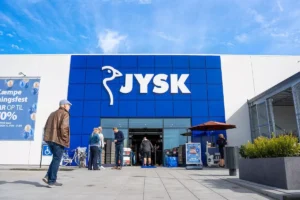Rising costs. Global uncertainty. A tight labor market. You’d think Greek entrepreneurs might be hitting the brakes, but according to EY’s Entrepreneurship Barometer Greece 2025, they’re doing just the opposite.
In the face of serious economic headwinds, Greek business leaders are doubling down on investments, especially in technology and innovation, and showing real optimism about the future.
Cost pressures are real
More than 80% of entrepreneurs say rising operational and labor costs are straining their bottom lines. Yet, 41% still see the current business environment as favorable – much higher than the regional CESA average of just 24%.
But there are clear frustrations: bureaucracy, complex regulations, and a shortage of skilled workers are top obstacles holding back growth.
Innovation is the name of the game
If there’s one thing Greek businesses aren’t cutting back on, it’s innovation. 65% will invest in IT systems and software, 62% plan upgrades to equipment and machinery, 45% are building or expanding facilities.
It’s not just talk, either. This is real investment, mostly funded through retained earnings and self-financing – only 19% are relying on banks.
Everyone’s talking about AI
AI is on the radar, and expectations are sky-high: 76% believe it will significantly improve operations. Nearly half expect faster, smarter decisions and cost savings, and many anticipate AI will boost quality control and reduce errors
But when it comes to putting money where the hype is? Investment is still low: 27% of businesses haven’t spent a dime on AI in the last 3 years. Only 5% have invested more than EUR 250,000. That said, Greece is ahead of the CESA curve, where 43% have made no AI investments at all.
Hiring plans are strong
If you’re job hunting in Greece, the outlook is promising, 67% of businesses plan to hire full-time employees in the next 12 months, compared to just 48% in neighboring markets.
The tech sector leads the charge, with a whopping 85% looking to grow their teams. But there’s a big problem: skills. Thus, 78% of entrepreneurs can’t find candidates with the right expertise, and 61% say lack of experience is a deal-breaker.
Selling the business? Most say “Not yet”
While M&A activity is on the rise, 58% of entrepreneurs don’t expect to sell any part of their business in the next year. If they do exit, most are eyeing private investors or funds (48%), strategic buyers (41%), passing the business on to family (38%).
Speaking of family businesses – 62% of respondents run one. But succession planning is still informal as just 32% have a formal plan, only 6% have hired external advisors, and nearly 1 in 5 haven’t thought about succession at all.








